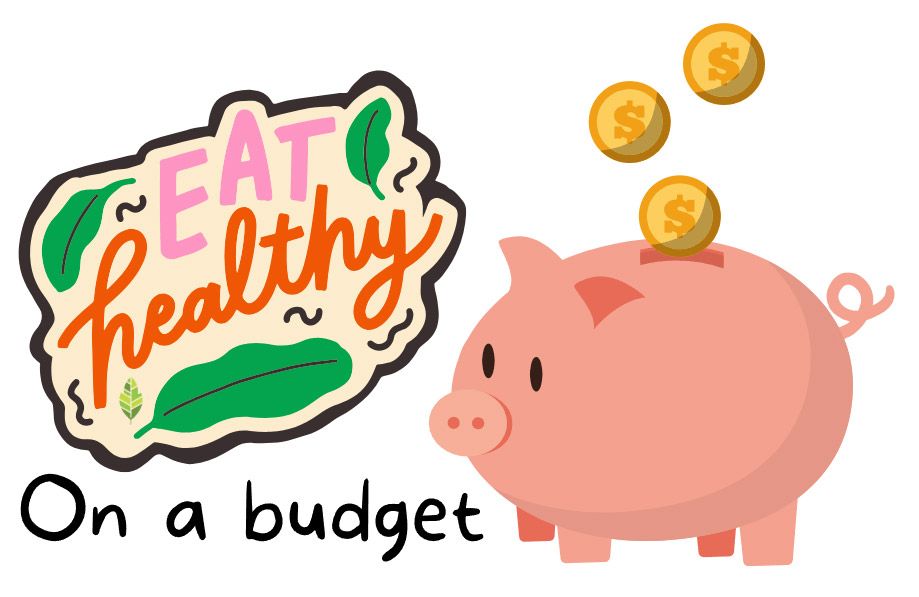- HOME
- ABOUT
- PATIENTS
- SERVICES
- PRIMARY & FAMILY CARE
- DENTAL CARE
- BEHAVIORAL HEALTH
- PHARMACY & MEDICATION SERVICES
- SUBSTANCE USE DISORDER
- CHRONIC DISEASE PREVENTION & CARE MANAGEMENT
- LIFESTYLE MANAGEMENT PROGRAMS
- CHILD & ADOLESCENT THERAPY
- SCHOOL-BASED BEHAVIORAL HEALTH
- INCLUSIVE HEALTHCARE FOR LGBTQIA+ INDIVIDUALS
- CASE MANAGEMENT
- CAREERS
- PARKER MEDICAL CENTER
- CONTACT
Eat Healthy on a Budget! Affordable Nutrition for Your Wallet and Waistline
Eating a healthy diet can be difficult, particularly in the face of increasing food prices. It becomes even more challenging to eat healthily when working with a limited budget. However, there's a silver lining: it's entirely possible to sustain a nutritious diet without emptying your wallet! Let’s explore some practical tips and strategies to help you maneuver through the realm of cost-effective, wholesome eating. Are you prepared to uncover how you can achieve a balanced, budget-friendly lifestyle without compromising taste or quality? Let's get started.

Plan and Prioritize
Planning your meals might take a bit of time, but it saves you time in the long run. Planning also saves you money, it also ensures that you make healthier choices. Draft a weekly meal plan and stick to it. This way, you'll avoid impulse purchases and unhealthy options. Prioritize nutrient-dense foods like fruits, vegetables, whole grains, and lean proteins. Remember, it's not about depriving yourself; it's about making smarter choices.
Shop Smart and Seasonally
Buying fruits and vegetables in season is a fantastic way to save money and enjoy fresh, nutrient-rich produce. Seasonal produce often costs less due to its abundance, so take advantage of nature's cycles. Familiarize yourself with seasonal options and stock up when prices are low. You can also preserve fruits and vegetables by freezing or canning them for future use. Shop at local farmers markets like the Helena Farmer’s Market for fresh fruits, vegetables, and other goods. The market runs from late April to October.
Another tip is to shop the edges of a supermarket, avoiding the middle aisles. Why? Produce, meats, whole grain breads and other healthier staples tend to be placed along the edges of a supermarket, while processed foods tend to be in the middle of the store. By shopping the edges, you’re more likely to eat healthier and save some money (shopping the edges usually reduces impulse buying!).
Buy In Bulk and Store Properly
Purchasing non-perishable items like grains, legumes, and nuts in bulk can lead to significant savings. These foods are usually cheaper per unit when bought in larger quantities. Make sure to store them in airtight containers to maintain freshness and quality. However, be mindful of expiration dates and only buy what you can consume before it spoils.
Embrace Plant-Based Proteins
Meat can be expensive, so consider incorporating plant-based protein sources into your meals. Beans, lentils, chickpeas, tofu, and tempeh are all nutritious and affordable alternatives. They're versatile, making it easy to incorporate them into various dishes, and they provide essential nutrients like fiber, vitamins, and minerals.
Does this mean eating vegetarian or vegan? No! We're only talking about swapping out some meals with some plant-based proteins.
Also, watch for sales on meat at local grocery stores and stock up, freezing what you can’t use right away to make your dollar stretch farther.
Cook At Home and Batch Cook
This isn’t much of a surprise – preparing your meals at home is often healthier and more cost-effective than eating out or relying on pre-packaged meals. In fact, the average family of four in America spends about $2,700 a year eating out! You don’t have to give up eating out all the time, but just think of the savings of eating out less often.
Cooking in bulk can save you time, energy, and money. Dedicate a day to prepare large quantities of food, portion them out, and store them in the freezer or fridge for the week ahead. This approach reduces the temptation to order takeout or eat unhealthy convenience foods.
Use Everything and Minimize Waste
Get creative with your ingredients and use them to their full potential. Utilize leftovers in new recipes or repurpose them into completely different meals. Don't throw away vegetable scraps; use them to make flavorful broths and stocks. Embracing a zero-waste mindset helps you save money and contributes to a more sustainable lifestyle.
Look For Discounts and Deals
ALWAYS keep an eye out for sales, coupons, and discounts at our local grocery stores. Make it a habit to check flyers and apps for promotions on healthy food items. You can often find great deals on produce, lean/bulk meats, and whole grains. Just remember to prioritize nutritious options over unhealthy, processed items that may be on sale.
Talk With Your Healthcare Provider
PureView strongly recommends that you consult with your healthcare provider or a registered dietitian before making any significant dietary changes. These folks can offer personalized guidance based on your unique health conditions, goals, and other requirements. It's important to remember that your well-being is a top priority. Seeking professional advice ensures you make informed decisions about your nutrition and health.
Conclusion
Eating healthy on a budget can be achievable with a little planning and creativity. By implementing these tips, you'll discover that nutritious food can be both affordable and enjoyable.

This health center is a Health Center Program grantee under 42 U.S.C. 254B, and a deemed Public Health Service employee under 42 U.S.C. 233(g)-(n).









